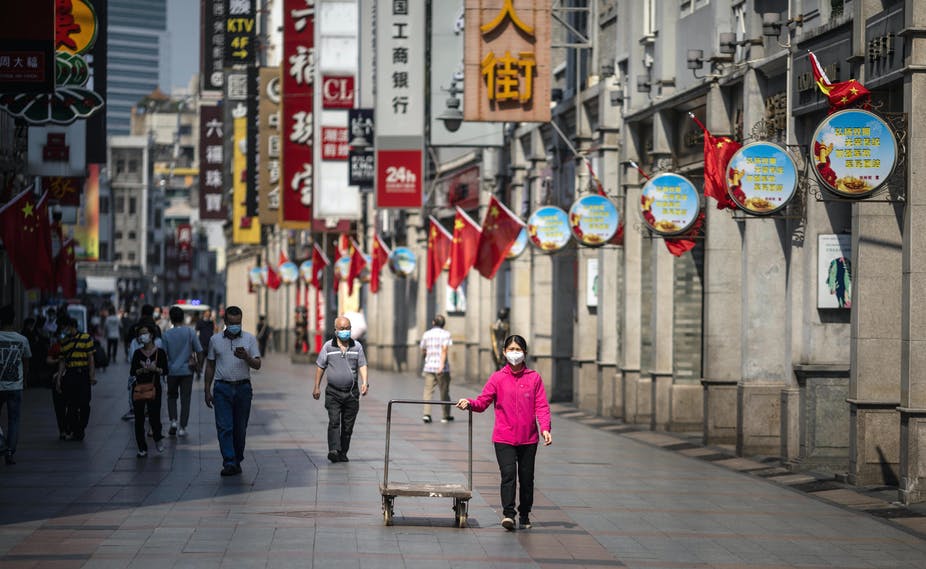Suing China for COVID-19 is impossible and may backfire – why countries must cooperate
3 min read
by Muhammad Zulfikar Rakhmat
Lecturer in International Relations, Universitas Islam Indonesia (UII)
As the COVID-19 pandemic has continued to take its toll on the global economy, some countries are planning to sue China for causing financial problems and a health crisis in their countries.
Countries like the US, India and Nigeria have blamed China for failing to to take precautionary measures to stop the virus spreading globally.
At the time of writing, 217,000 people have died due to the virus and the pandemic’s global cost could range from US$2 trillion to US$4.1 trillion – 2.3-4.8% of global gross domestic product (GDP).
However, under international law, such a legal move is impossible. It is also not strategic, given China’s rising status as the new world power.
In a time of crisis like today, instead of blaming one another, countries should foster international cooperation.
Impossible lawsuits
Suing China for the COVID-19 pandemic is legally impossible under international law.
A principle developed during the early days of English monarchs that “The King can do no wrong”, called the Sovereign Immunity principle, prevents the government or its political subdivisions, departments and agencies from being sued in civil or criminal litigation.
In the current day, the principle means no country can be sued without its consent in domestic and international courts. This means China would need to consent to have litigation filed against it before it could be sued.
Thus, as Natalie Klein, a law professor at the University of New South Wales, argues, if China chooses not to consent, which is the most likely option, there would be no case against it.
A 19th-century treaty on the global spread of infectious diseases had rules requiring payment of compensation for damage in other countries associated with violations of treaty rules. However, the International Health Regulations signed in 2015 and now the world’s main contemporary health treaty, has no provisions on this issue.
Blaming China is not strategic
China is the world’s biggest manufacturing country as well as the world’s biggest creditor.
This means much of the world is dependent on China. Countries are either trading more goods with China or receiving more investment from Beijing.
While China may need other countries to achieve economic recovery, the world is also dependent on China for its recovery.
As one of the world’s biggest lenders, China holds, for example, about 20% of the total debt in Africa. Blaming China is to risk creating a situation where poor nations have trouble getting loans in future.
Equally important, China is the world’s leading source of medical supplies needed to control the virus, including surgical masks. If a vaccine is ever developed, China will also be a major player in its production, distribution and maybe its invention. Therefore, it would be injudicious to condemn China’s mendacity too loudly.
The Chinese government bears some responsibility for the pandemic, but we still need its assistance to fight the virus.
Promoting global cooperation amid the pandemic
The COVID-19 pandemic should be a moment for the international community to reflect that working together is the best solution.
There is already international collaboration to deal with climate change, refugees and other global problems. It is about time countries developed solid cooperation to tackle COVID-19.
The 20 member nations in the G20 provided a shining example when the group suspended debt repayments from the world’s poorest countries until the end of the year. The goal is that those countries could instead channel their funds into health care.
Blaming or even suing one another would only shift the focus away from making real and concrete efforts to stop the spread of the coronavirus and to cure those who are already infected.
Pursuing the path of blame game would distract countries from what should be the utmost priority: flattening the curve.


